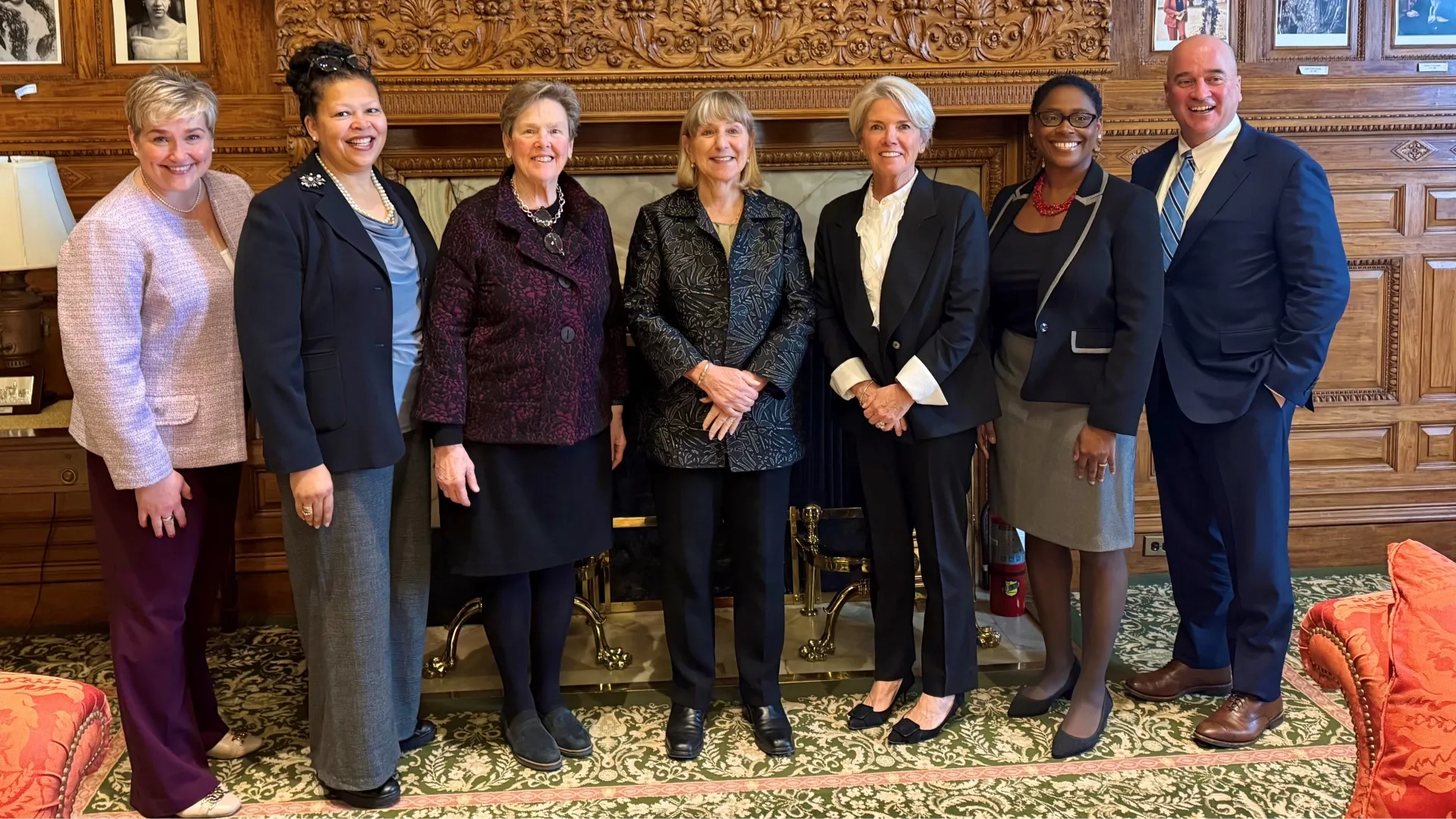
IHP president and other college leaders meet with Senate President Spilka to discuss research funding, workforce development, and student financial aid
When it comes to supporting higher education, independent institutions like MGH Institute of Health Professions play a critical role — a point President Paula Milone-Nuzzo highlighted during a meeting with Massachusetts Senate President Karen Spilka at the State House earlier this month.
Milone-Nuzzo was joined by the presidents of Springfield College, Urban College of Boston, Emmanuel College, and Smith College in a discussion organized by Rob McCarron, President of the Association of Independent Colleges and Universities in Massachusetts. The meeting provided an opportunity for Spilka to hear directly from these college leaders about emerging challenges from Washington, D.C., and to explore opportunities for stronger collaboration and increased support from the Commonwealth.
“Private colleges are not just an economic engine driving Massachusetts forward — we are also a supportive engine, powering progress in health, science, and social services,” Milone-Nuzzo said. “We make a real impact in communities across the state.”
One of Milone-Nuzzo’s biggest concerns centered on potential cuts to NIH research funding and their direct impact on Massachusetts communities — particularly local children and families.
“Research goes beyond labs and publications — it directly impacts real people,” Milone-Nuzzo said.
She described how the Institute’s literacy programs with Boston Public Schools have already transformed children’s learning. Without continued funding, these initiatives could vanish.
For Milone-Nuzzo, the stakes were personal. The funding supports children in Boston and Charlestown, students across local schools, and the next generation of healthcare workers whose careers depend on sustained research investments.
As the conversation unfolded, President Milone-Nuzzo raised an issue that resonated clearly around the room: Massachusetts faces a growing demand for skilled healthcare workers, and independent colleges are crucial to meeting this need.
“Independent colleges are not just educating students — we are fueling the healthcare system,” Milone-Nuzzo emphasized. “In Massachusetts, we prepare more nurses than public institutions, yet much of the state funding still favors public schools. So, anytime you disproportionately impact the independent schools, you have an impact on the workforce that we can develop.”
But it wasn't nursing shortages at stake — Milone-Nuzzo emphasized workforce shortages in STEM, and other key sectors, calling for equitable state grant programs that follow students — rather than institutions — to ensure all students can access financial aid.
Beyond workforce development, the conversation touched upon financial pressures confronting private colleges — particularly PILOT (payment in lieu of taxes) programs and proposed taxes on college endowments. President Milone-Nuzzo explained that although MGH Institute's PILOT payments are incorporated into Mass General Brigham’s contributions, the Institute independently provides substantial community support.
“Our Impact Practice Center alone provides $1.5 million in free care every year to uninsured or underinsured patients,” she noted, adding that the Institute contributes between two and three million dollars annually in total community services. “This is a meaningful investment in public health — and it's essential that its value isn't overlooked.”
Do you have a story the Office of Strategic Communications should know about? If so, let us know.
